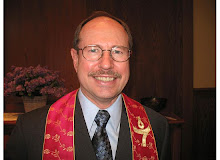Saturday, August 22, 2009
Does it Matter? You Bet your Donuts!
Sunday, August 16, 2009
So Much to Talk About
1 We believe that the universe in which we live and move and have our being is the expression of an inexorable process that began in eons past, ages beyond our comprehension and has evolved from singularity to multiplicity, from simplicity to complexity, from disorder to order.
2 We believe that the earth and all who live upon the earth are products of the same process that swirled the galaxies into being, that ignited the stars and orbited the planets through the night sky, that we are expressions of that universal process which has created and formed us out of recycled star dust.
3 We believe that all living things are members of a single community, all expressions of a planetary process that produced life and sustains it in intricate ways beyond our knowing.
4 We hold the life process itself to be sacred.
5 We believe that the health of the human venture is inextricably dependent upon the integrity of the rest of the community of living things and upon the integrity of those processes by which life is bodied forth and sustained. Therefore we affirm that we are called to serve the planetary process upon which life depends.
6 We believe that in this interconnected existence the well-being of one cannot be separated from the well-being of the whole, that ultimately we all spring from the same source and all journey to the same ultimate destiny.
7 We believe that the universe outside of us and the universe within us is one universe. Because that is so, our efforts, our dreams, our hopes, our ambitions are the dreams, hopes and ambitions of the universe itself. In us, and perhaps elsewhere, the Universe is reaching toward self-awareness, toward self-consciousness.
8 We believe that our efforts to understand the world and our place within it are an expression of the Universe’s deep drive toward meaning. In us, and perhaps elsewhere, the Universe dreams dreams and reaches toward unknown possibilities.
9 We hold as sacred the unquenchable drive to know and to understand.
10 We believe that the moral impulse that weaves its way through our lives, luring us to practices of justice and mercy and compassion, is threaded through the universe itself and it is this universal longing that finds outlet in our best moments.
11 We believe that our location within the community of living things places upon us inescapable responsibilities. Life is more than our understanding of it, but the level of our comprehension demands that we act out of conscious concern for the broadest vision of community we can command and that we seek not our welfare alone, but the welfare of the whole.
12 We are commanded to serve life and serve it to the seven times seventieth generation.
13 We believe that those least like us, those located on the margins have important contributions to make to the rest of the community of life and that in some curious way, we are all located on the margins.
14 We believe that all that functions to divide us from each other and from the community of living things is to be resisted in the name of that larger vision of a world everywhere alive, everywhere seeking to incarnate a deep, implicate process that called us into being, that sustains us in being, that transforms us as we cannot transform ourselves, that receives us back to itself when life has used us up.
15 Not knowing the end of that process, nonetheless we trust it, we rest in it, and we serve it.
16 (This faith statement is not a creed. Neither this nor any other form of words will be used among us as a creedal test.)
